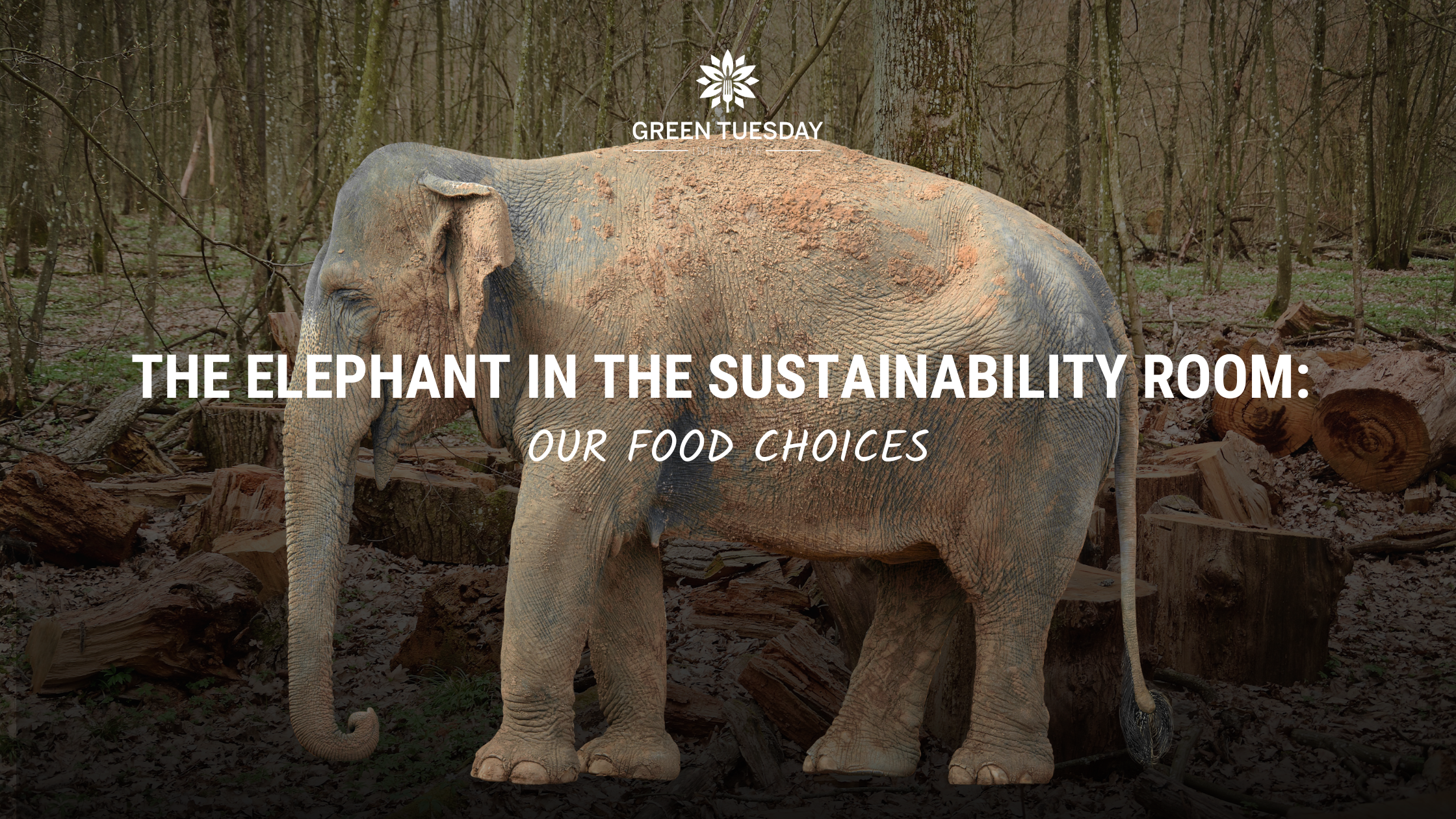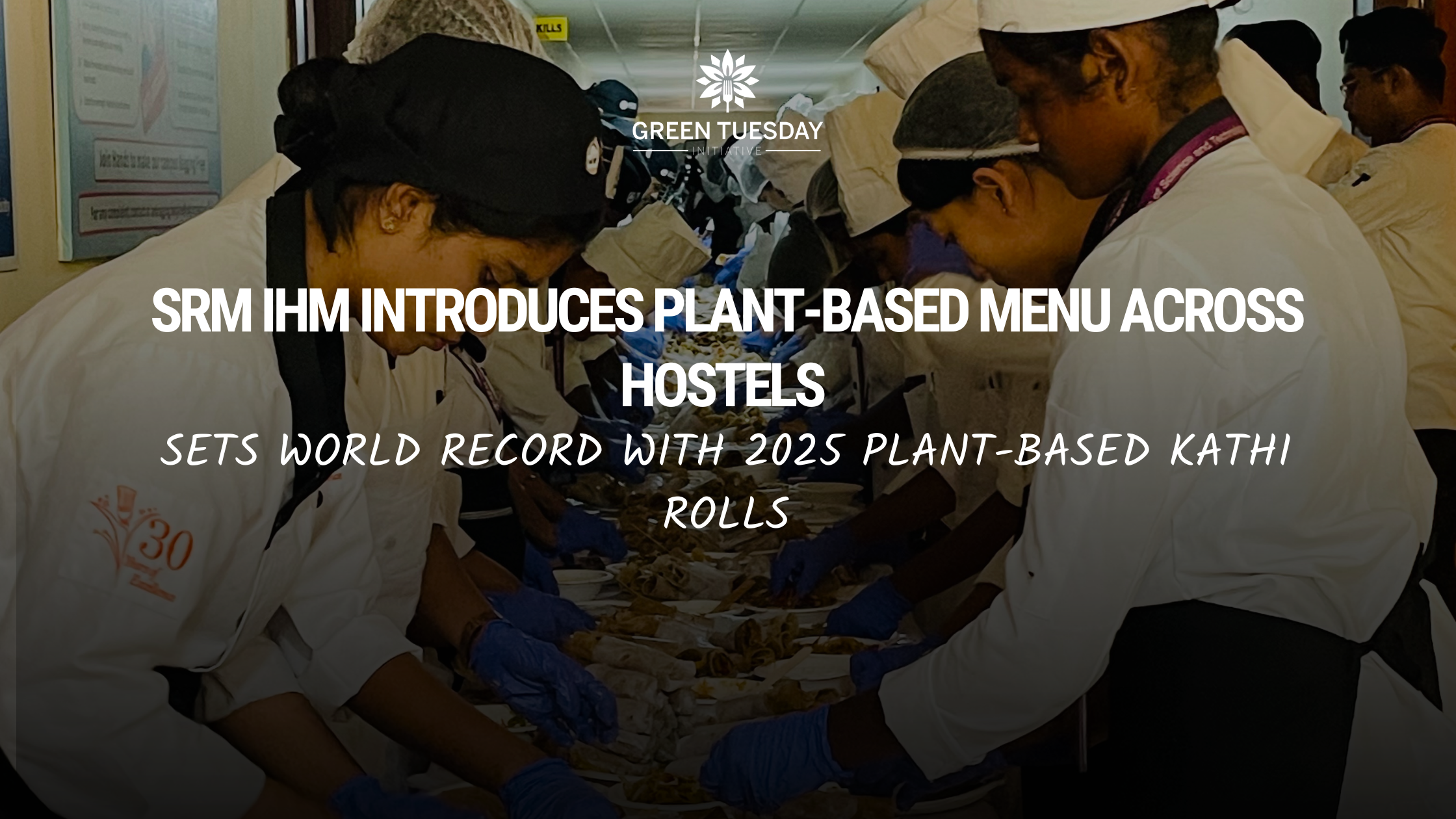On July 8th, 2024, ICE College of Hotel Management and Catering Technology in Navi Mumbai made a commitment to sustainability by joining the Green Tuesday Initiative. This move not only highlights the institution’s dedication to reducing its environmental footprint but also reflects a growing shift in the hospitality industry toward plant-based culinary techniques.

As one of the leading hotel management institutes in India, ICE College of Hotel Management is known for its innovative approach to hospitality education. By integrating plant-based cooking into its curriculum and implementing plant-based days on campus, ICE College of Hotel Management is preparing its students to lead the charge toward a more sustainable and compassionate future.
But why is this shift important, and what does it mean for the future of culinary arts?
The Role of Culinary Education in Sustainability
Traditionally, culinary training focuses on techniques centered around ingredients with high carbon footprint like meat and dairy, largely reflecting the historical dominance of these ingredients in global cuisine. However, the environmental impact of such ingredients—high carbon footprints, excessive water usage, and a significant role in deforestation—has raised concerns about their sustainability. With climate change becoming an increasingly pressing issue, culinary institutions like ICE College of Hotel Management are recognizing the need to teach plant-based culinary techniques as part of a modern chef’s repertoire.
Shifting to plant-based cooking is not a fad or trend to be taken lightly; it’s about ensuring that future chefs are equipped with the skills needed to cater to an evolving market. According to numerous studies, the demand for plant-based foods is growing exponentially. Consumers are more aware of the health benefits of plant-based diets and the positive environmental impact these foods have.
By teaching plant-based techniques, ICE College of Hotel Management is positioning itself as a leader in progressive culinary education. The training sessions and plant-based days implemented by the institution will enable students to master innovative recipes, experiment with alternative ingredients, and hone their creativity—skills that are becoming essential in the ever-changing world of food service.
Why Does Plant-Based Cooking Matter?
The importance of plant-based cooking goes beyond catering to the growing population of vegans and vegetarians. It also addresses broader issues like food sustainability and accessibility. Plant-based ingredients generally have a much smaller carbon footprint compared to their high-carbon-footprint food counterparts. For example, producing one kilogram of Chicken requires about 660 liters of water and produces nearly 9.87 kilograms of carbon emissions, while producing the same amount of lentils only requires about 14 liters of water and produces 2.54 kilograms of carbon emissions. This dramatic difference highlights the potential of plant-based diets in conserving resources and reducing greenhouse gas emissions.

For culinary students, learning to cook plant-based meals provides them with an edge in an increasingly eco-conscious industry. Restaurants and hotels are under pressure to reduce their environmental impact, and being able to offer sustainable menu options is becoming a key differentiator. In this context, ICE College of Hotel Management’s decision to introduce plant-based cooking skills into its curriculum ensures that its graduates are prepared for a future where sustainability will be critical to success in the culinary world.
Additionally, this transition will improve the institution’s efforts towards sustainability with 25,588 kgs of CO2 reduction and saving 98,13,171 liters of water annually.
Mastering Plant-Based Techniques
Teaching plant-based cooking isn’t just about swapping high-carbon-footprint ingredients with low-carbon-footprint ingredients—it involves mastering a variety of techniques to ensure flavor, texture, and nutrition are on par with traditional meals. From creating rich and creamy sauces without dairy to mimicking the texture of meat using ingredients like mushrooms, jackfruit, or legumes, plant-based culinary arts push the boundaries of creativity and innovation.
At ICE College of Hotel Management, students will have the opportunity to work with a wide range of plant-based ingredients. They’ll learn to create gourmet dishes that are not only delicious but also sustainable and healthy. For example, mastering the art of making a creamy cashew-based sauce can replace heavy cream in pasta dishes, while using aquafaba (the liquid from cooked chickpeas) can replicate the function of egg whites in baking. These are just a few examples of the versatile techniques that will become part of the curriculum at ICE College of Hotel Management.

Furthermore, plant-based cooking often encourages a broader understanding of international cuisines. Many cultures around the world—especially in Asia, Africa, and the Mediterranean—have long-standing traditions of plant-forward diets. By exploring these cuisines, students can draw inspiration from a variety of culinary traditions, further expanding their skills and knowledge.
The Future of Hospitality is Plant-Based
As the hospitality industry continues to evolve, the demand for plant-based dishes is only expected to grow. Hotels, restaurants, and catering services are increasingly adding plant-based options to their menus to cater to both environmentally-conscious consumers and those with dietary restrictions. ICE College of Hotel Management’s involvement with the Green Tuesday Initiative reflects this shift and demonstrates its commitment to educating future hospitality leaders about the importance of sustainability.
The institute’s decision to implement plant-based days on campus and provide specialized training ensures their graduates will be well-versed in sustainable cooking practices. This makes them more competitive in an industry that is increasingly moving toward environmentally friendly and healthy dining.
As the hospitality industry grapples with the challenges of sustainability, the ability to offer plant-based alternatives is no longer just a bonus—it’s becoming a necessity. For students, this shift opens up new avenues for creativity, sustainability, and career opportunities. By mastering plant-based culinary techniques, they will not only contribute to a healthier planet but also meet the demands of a rapidly changing food industry.
ICE College of Hotel Management is paving the way for a new generation of chefs—chefs who understand that the future of food is plant-based. In the past, SRM Institute of Hotel and Catering Management and DY Patil University School of Hospitality and Tourism Studies signed similar pledges with the Green Tuesday Initiative to contribute to the growing momentum towards inculcating plant-based culinary education in their courses.
Reach out to Sowndarya Ganesan, Campaign Specialist at Green Tuesday Initiative, to learn how your institution can implement plant-based days, integrate sustainable culinary techniques into your curriculum, and reduce your environmental footprint. Together, we can make a lasting impact on the planet and the future of hospitality.
Email: [email protected]
Phone: +91 87781 49743
Join us in creating a sustainable future, one meal at a time.
About Green Tuesday Initiative:
Green Tuesday Initiative is a prolific campaign by Vegan Outreach (501c3 nonprofit in the USA) to help corporations and educational institutions reduce their environmental footprint by making small changes in the food they serve. Visit us at www.greentuesday.org




